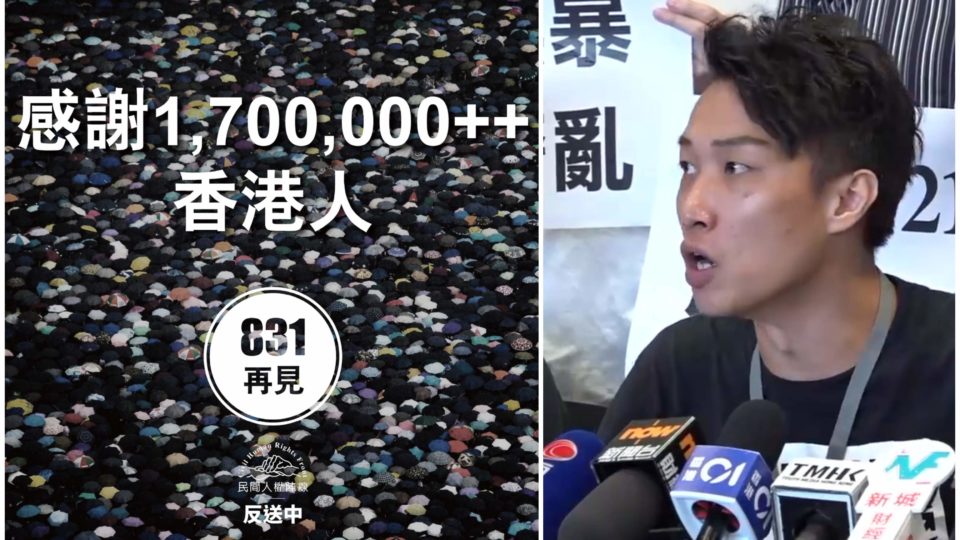In an unprecedented move, Hong Kong police have rejected the Civil Human Rights Front’s application to hold a major march on Saturday, refusing to even allow a contained rally in Victoria Park as they have for past banned marches.
The Front — the organizer behind past million-strong marches, including the one that kicked off the current pro-democracy movement in earnest — briefly confirmed that police had issued an objection notice on their Facebook page today.
CHRF told RTHK it was already seeking to appeal the decision, which police said was in response to violent clashes and unsanctioned marches that followed prior rallies, but were outside of the CHRF’s control.
“The Civil Human Rights Front tried its best to protect protesters in the past few months … we are trying our best to uphold peaceful demonstrations,” CHRF representative Jacky Hung told the outlet. “But the police have put all their excuses and faults on the Civil Human Rights Front, which is very unfair to us.”
Though Front convenor Jimmy Sham said the group was readying an appeal, he said he was not hopeful it would be successful.
Since June, the CHRF’s marches have been notable for their enormous size, and their nonviolence. However, hardcore protesters in the past have ignored police orders — as well as the CHRF’s pleas — not to march past certain points, or to restrict their activities to Victoria Park, with clashes sometimes ensuing as hardline elements refuse to clear roads.
Police similarly objected to a CHRF march on Aug. 18, but allowed supporters to congregate in Victoria Park instead. The turnout — hundreds of thousands strong — was so enormous that crowds spilled out of the venue, and an unsanctioned march to Admiralty took place anyway.
Though technically illegal, the march was studiously peaceful, and marked the first weekend in Hong Kong without police deploying tear gas in several weeks.
Saturday’s march was meant to mark the five-year anniversary of the proposal of a so-called “electoral reform” package that would have allowed Hongkongers to vote for chief executive, but only from among a group of Beijing-approved candidates. Pro-dems ultimately rejected the bill as “fake” democratic reform, and for failing to make good on Beijing’s previous promises of genuine universal suffrage, which has become a central demand of the current protest movement.
Under the Public Order Ordinance, anyone who takes part in or convenes an illegal assembly can be imprisoned for up to five years.




